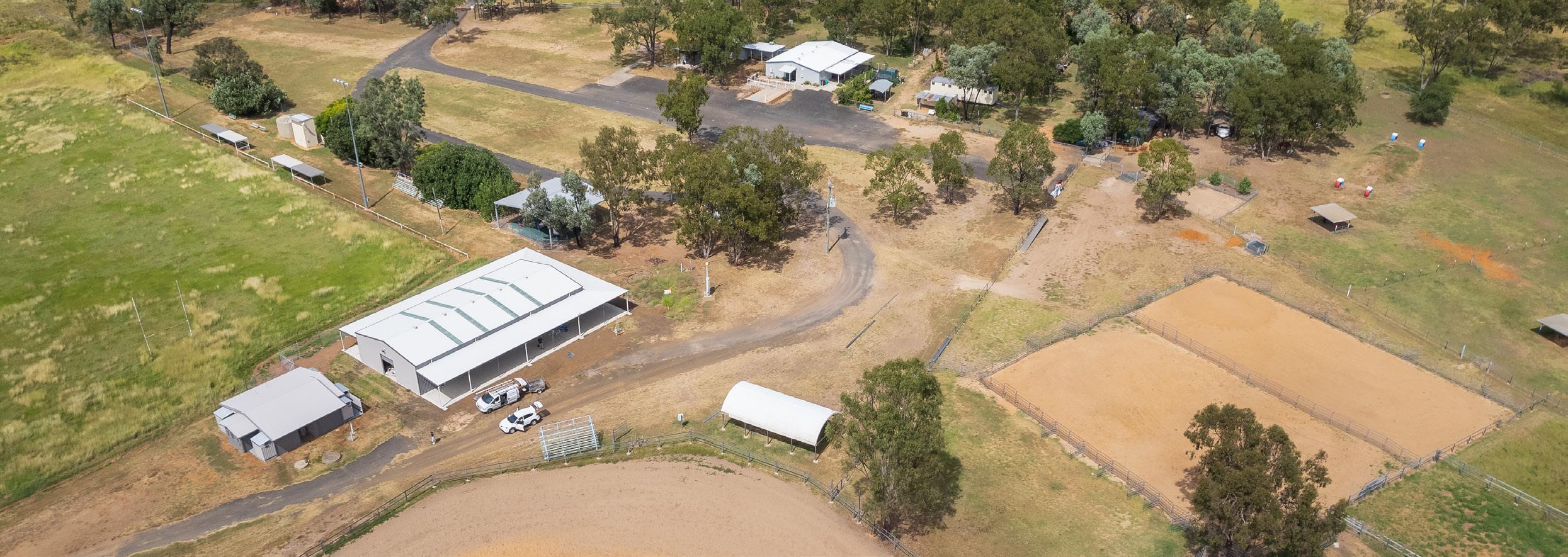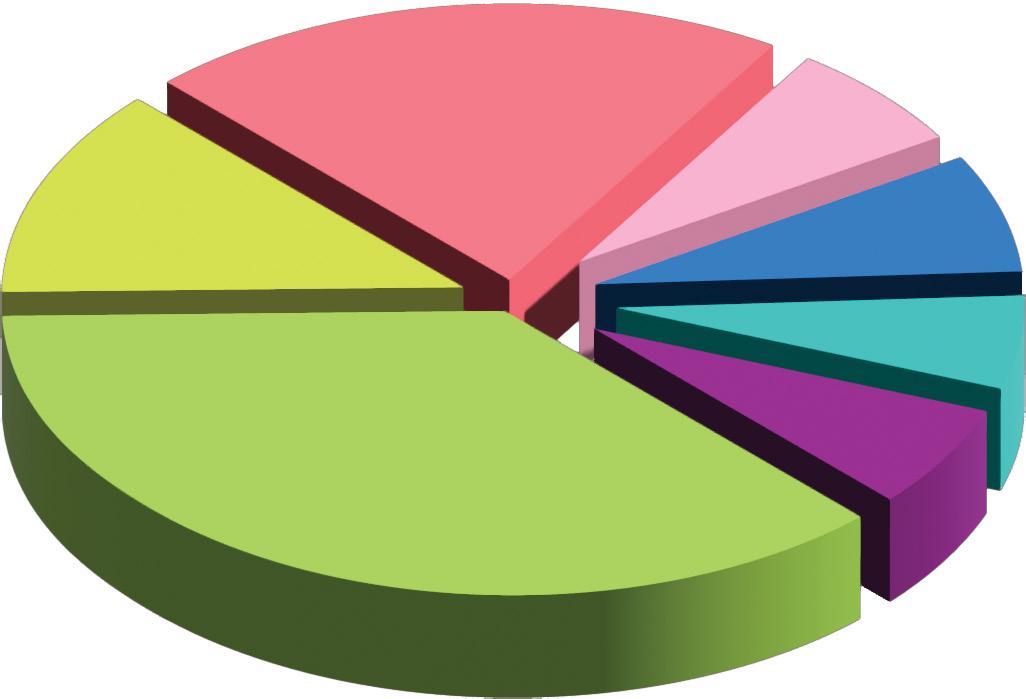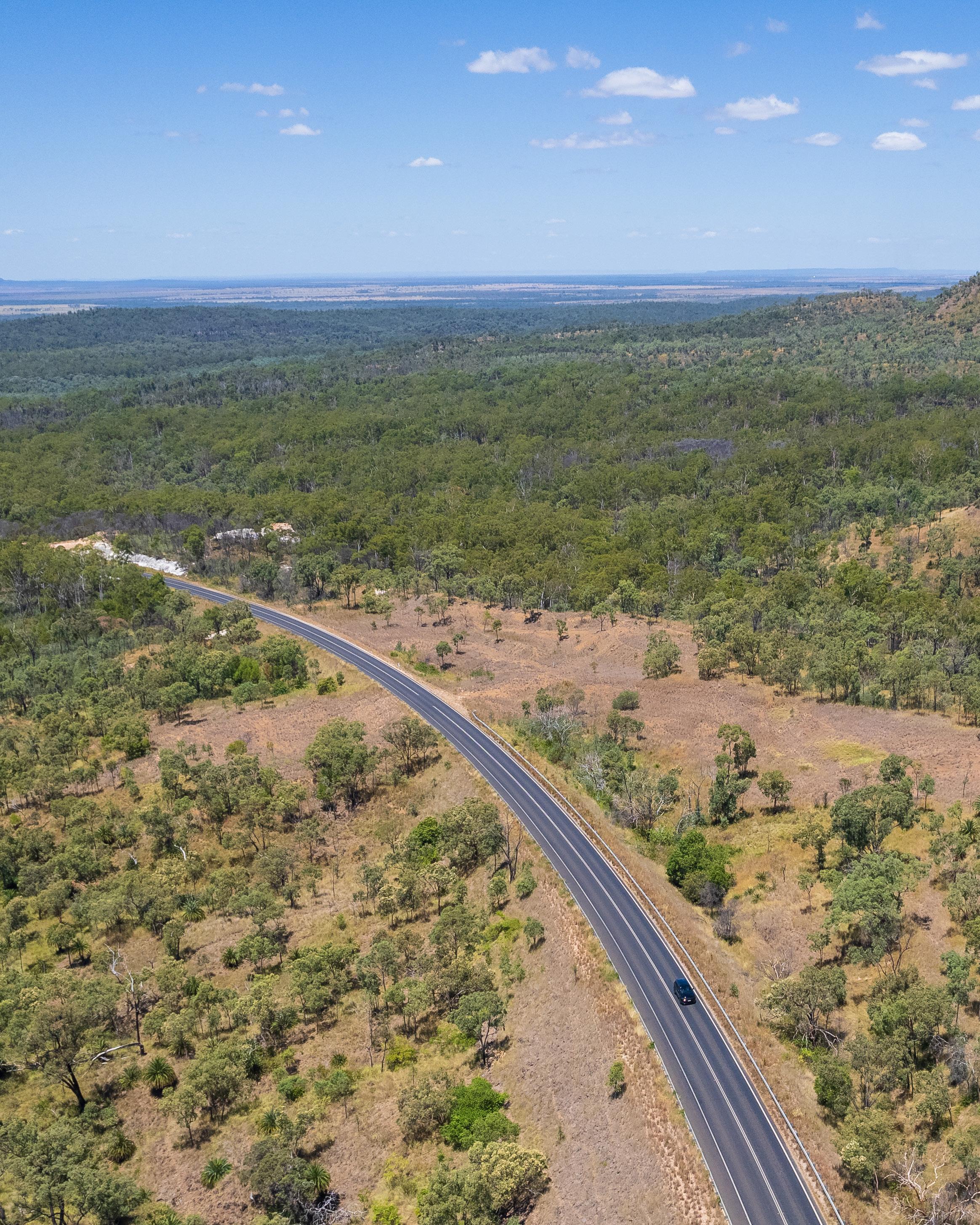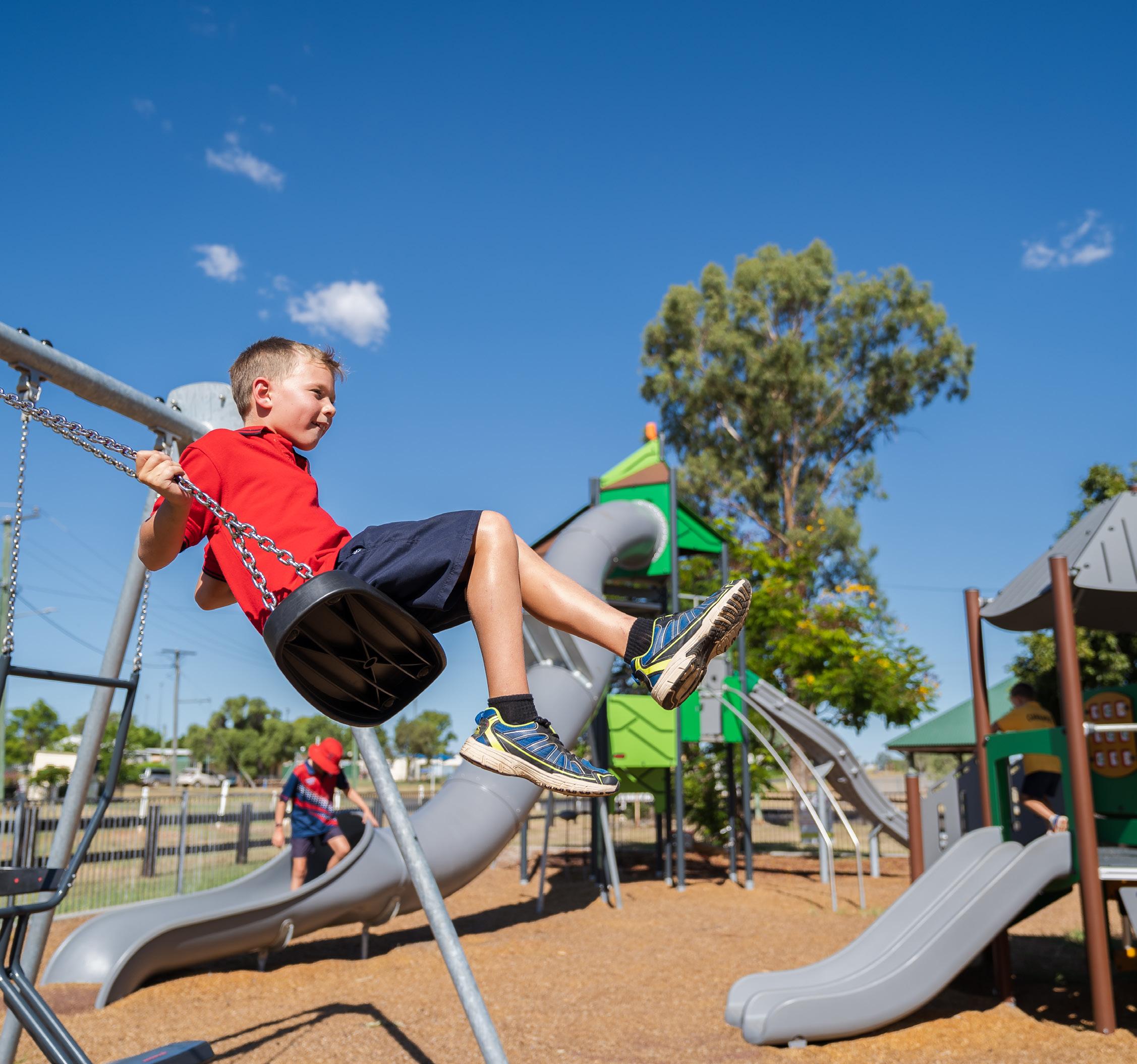

Message from the Mayor
Central Highlands Regional Council has adopted a $292 million budget, outlining its focus for our 13 communities in 2023-2024. This budget reflects the goals and priorities that underpin our five-year corporate plan and is the fourth and final budget in this term of council.

This budget is our commitment to prioritise and deliver for all our communities – it is a big task with unique challenges.
This council, your council, provides many services across an area that is the size of Tasmania and reliably maintains a pool of infrastructure assets valued at approximately $1.7 billion.
While the provision of some of our services is not always visible or promoted, they are all essential to make this a healthy, safe, inclusive and liveable region.
This has been a challenging budget to deliver. Council is operating in an environment of high inflation and shortages of labour, materials and suppliers. The Australian economy is currently experiencing that same persistent higher inflation, rising interest rates and slow growth.
It is these broader factors which are impacting our residents and contributing to cost of living pressure to household budgets.
This budget has had to carefully balance the expectations of our communities, the region’s progress and our fiscal responsibility to remain financially sustainable.
General rates
General rates increase
Council has made a conscious decision to keep general rate increases to a minimum and has maintained them at the same level that was forecast in our long-term financial plan. These increases are below CPI inflation which is currently reported at just over 7%.
Next year, residential, rural and commercial sector general rates will increase by an average of 3% and the increase for the coal mining sector will be 4%.
Rate cap
Residents in the rural sector, who experienced large land valuation increases in the last region-wide revaluation program, may experience higher increases than the average. While the impact on each individual rural ratepayer will be different, the increase will be no more than 10%. This reflects the application by council of a cap for the rural sector to ensure that you will pay no more than a 10% increase on your last bill. This cap is significantly less than the 30% cap that was forecast for 2023-2024 in our long-term financial plan.

Rating category changes
Council has undertaken detailed reviews of its resource sector rating categories as part of the budget development this year. These categories include coal mining, gas production and workers’ accommodation, which will all be rated next year under new frameworks. As a result, they will experience higher increases than other ratepayers.
The resource sector rating categories had not been reviewed for a number of years. The new rating models are consistent with the characteristics of the land and reflect the impact of costs imposed by these industries on council’s assets and services. Council values the benefit that the coal mining and gas sectors, including the associated support facilities, bring to our region, and has already informed all companies of the changes.
Utility charges
Utility charges, for refuse, water supply and sewerage services, will be subject to higher increases than general rates, although refuse and sewerage will still come in under CPI inflation.
The associated service provision of waste disposal, transfer station operation and recycling activities have been subject to significant cost pressures. Refuse charges will increase overall by 5.5% next year after maintaining annual increases at 3% for several years now.
Message from the Mayor
For an average residential ratepayer this is an annual increase of $28.50, about 55 cents extra per week after the 5% prompt payment discount.
Increases for sewerage services next year will be 6% which is also under the CPI inflation rate. This increase is required to ensure the maintenance, provision and replacement of the sewerage network without relying on support from general rates. For an average residential ratepayer, this will mean an annual increase of $44.65, which is about an extra 86 cents per week after the discount.
As we work to ensure the provision of secure water service delivery across the region, particularly to our smaller towns, council has increased water access charges by 9% and water consumption charges by 10% for next year. This is the same increase that was forecast in council’s long term financial plan. Because of the vast geographical network across the Highlands, water supply is one of the costliest services for council to provide, often relying on support from general rates.
Council also has an obligation to comply with local government legislation in relation to the National Competition Policy, which guides our annual price increases through a full-cost pricing model and ensures we raise sufficient revenue to limit the reliance on general rates. If this did not occur residents would see much higher increases in their general rates bills in order to subsidise the supply of water.
Depending on water usage, an average residential ratepayer will see an annual increase of $119, about an extra $2.29 per week in their total water bill after the discount

Total rates and charges, including remissions
When general rates are combined with utility charges, the majority of residential ratepayers on the minimum general rate will see an increase of around 6% in their total bill after the discount, or $4.44 per week.
Council continues to support the pensioners who live in our region and own their own homes by offering a 50% remission on all charges except for water consumption and the QLD State Government Emergency Management levy. This equates to just under a $1 million investment in the elderly of our region.
Council also recognises the value of not-for profit community and sporting groups in the region and supports their objectives by offering up to a 100% general rate rebate to eligible organisations.
Operating budget
For 2023-2024, council has budgeted an operating surplus of $5.1 million. The forward estimates of our long term financial plan also forecast a surplus position for the next 10 years.
It is important to understand that when we forecast our long-term financial position, we assume certain future economic conditions that don’t always become a reality. This is one of the main challenges in setting a budget, particularly in the volatile economic conditions that now prevail.
As reported last year in my budget overview, council has been impacted by the Queensland Local Government Grants Commission’s decision to reduce council’s financial assistance grant by 30% over a three year period. These grants, funded by the federal government and managed by the state government, are a primary source of income for council.
The repercussions of the reduced financial assistance grant funding combined with the current volatile state of the economy, has left council with a financial gap that must be recovered in order to maintain our core service levels and infrastructure, and ensure we stay sustainable in the long term.
Capital budget
This year we are also investing $81 million in new capital works projects plus $17 million in projects continuing from 2022-2023.
Message from the Mayor
As with many other local governments, delivery of the current year’s capital program has been constrained by supply chain issues - shortages in equipment, supplies, and materials and challenges engaging suitable contractors.
Council’s capital program is strongly focused on renewals but also includes upgrades to existing infrastructure such as the externally funded upgrade to Bonnie Doon Road and the replacement of the timber bridge on Withersfield Road. Expenditure on new infrastructure includes the installation of the much-needed flood warning network gauges and flooded road cameras. We are also investing in the pre-delivery phases of projects such as planning, feasibility, design and concept.
Combined funding by the state and federal governments to the tune of $27 million will help council deliver key capital projects included in this significant program.

Investing in capital infrastructure means we are securing our future - the projects included in our program recognise the growth of our region and will value-add to the way of life we all enjoy here in the Central Highlands.
Borrowings
While council’s long-term financial plan shows that financially we are sound, we must continue to be diligent to maintain this position. The budget and 10-year long-term financial plan indicate that we will undertake borrowings next year and in 2026-2027 to help fund our large capital works program over the next ten years.
The infrastructure demands placed on council can sometimes only be met through debt, however, council always considers the additional costs incurred by ratepayers when assets are acquired through borrowings.
The use of debt allows ratepayers in the future who will benefit from council’s infrastructure to effectively contribute to its provision or replacement rather than this burden falling on current ratepayers.
Although forecast, these planned borrowings may not proceed as council always reassesses the requirement for these funds during the year depending on additional grant funding that may be received or surplus cash that becomes available. Our focus will be on reducing debt over the longer term and by the end of our 10-year forecast, borrowings will reduce to about 1% of our total asset base.
Conclusion
This is a budget that is reflective of the current economic realities. Council recognises the cost pressures that household budgets are under, and the development of the 2023-2024 budget has been formulated with this in mind. Significant effort has gone into keeping increases in rates and charges as low as possible, while still ensuring that we can meet the financial sustainability targets set by the Department of Local Government.
This budget and our long-term financial forecast aim to ensure that council is well-positioned to manage future risks and opportunities and continues to support the planning and advocacy for the future economic prosperity of the Central Highlands region.
Cr Kerry Hayes Mayor
What we look after
Approximately $1.7 billion in assets including:
5,163 km of council roads
29,000 residents
13 communities
460 km of water mains
191 parks and open spaces
132 km of footpaths
14 resource recovery facilities

16 water and 8 wastewater treatment plants
Approximately 15,000 rateable properties
441 staff
5 aeroplane landing areas and 1 airport
15 cemeteries
10 library locations
7 customer service centres
60,000 square kilometres
Long-term destination goals
This budget is guided by our seven long-term destination goals, as outlined in the Central Highlands Regional Council Corporate Plan 2022-2027. These goals respond to our opportunities and challenges and represent what we want to achieve and where we want to be in the future.
6 aquatic centres
2 art galleries
1 saleyards
1. Deliver, enable and advocate for reliable services to our community
2. Protect and grow a diverse and prosperous economy
3. Support and enhance resilient, safe, vibrant and inclusive communities
4. Drive our council and the region towards a digital future
5. Develop a future-focused workforce to support council and our region
6. Responsibly manage our natural environment
7. Prepare for a low carbon future and adapt to a changing climate
Budget snapshot
New for 2023-2024
Average residential rates and charges rise after 5% prompt payment discount. (property on minimum general rate in Emerald with a land valuation greater than $60k)
Continuing from 2022-2023
per week capital works program
total budget community support
Grants programs, concessions, sponsorships and donations
total operational budget
$41.9 M
roads
$4.44 $80.8 M $17.2 M $324,841 $28.5
per annum after 5% discount
Average increase in residential water access charges
10%
rates capping
Maintenance of 5,163 km of council roads Residential, commerical and rural
community development
$292.4 M $509,752 $6.1M $22.9 M
per annum after 5% discount
Youth services, indigenous support, community wellbeing
parks and open spaces
Capital renewal, upgrade and new
arts, culture and libraries
$186.5 M $56.05 $2.2 M $8.2 M
Overall average increase in residential waste charges
critical water and sewerage asset investments
Capital renewal, upgrade and new
natural environment
our organisation
Cultural events and workshops, art galleries, library services, heritage Attraction and retention, skills training and development, workplace health and safety

$19.2 M $20.9 M
Investment in sustainable energy, environmental works, resource recovery, disaster management
digital future
Online council service delivery, digital technologies and initiatives, communications technology networks
What this budget means
for you
Where your money will go in 2023-2024
Rates
Council invests your rates directly back into your community to cover infrastructure and service delivery costs.
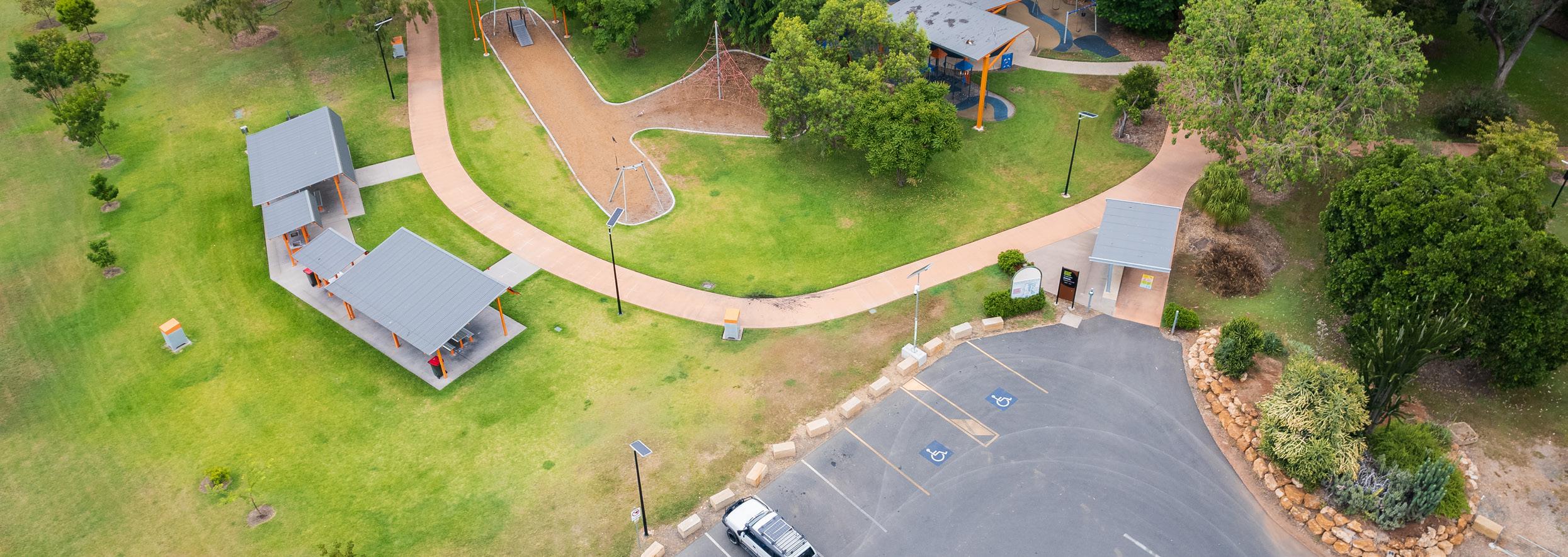
Council provides a 50% concession to eligible pensioners on all residential rates and charges (except for water consumption and QLD State Fire Levy). This is in addition to the 20% state government pensioner rebate (capped at $200 per annum).

Council invests your utility charges directly back into your community to cover costs associated with water and waste management.
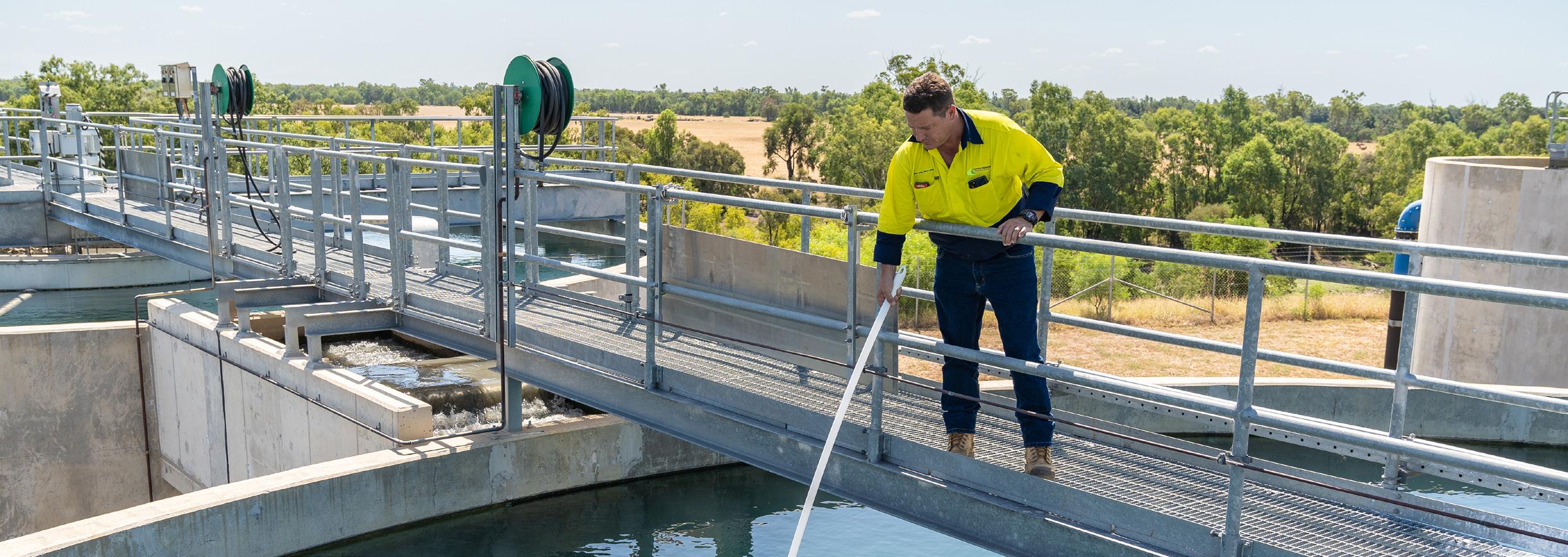
Financial hardship options
Council provides several concessions and payment options for ratepayers facing financial difficulty, including:
up to a 100% rebate on general rates for eligible not-for-profit organisations
deferred payment arrangements
suspension of interest when a ratepayer is in an approved deferred payment arrangement
financial hardship assistance measures
7. Prepare for a low carbon future and adapt to a changing climate
